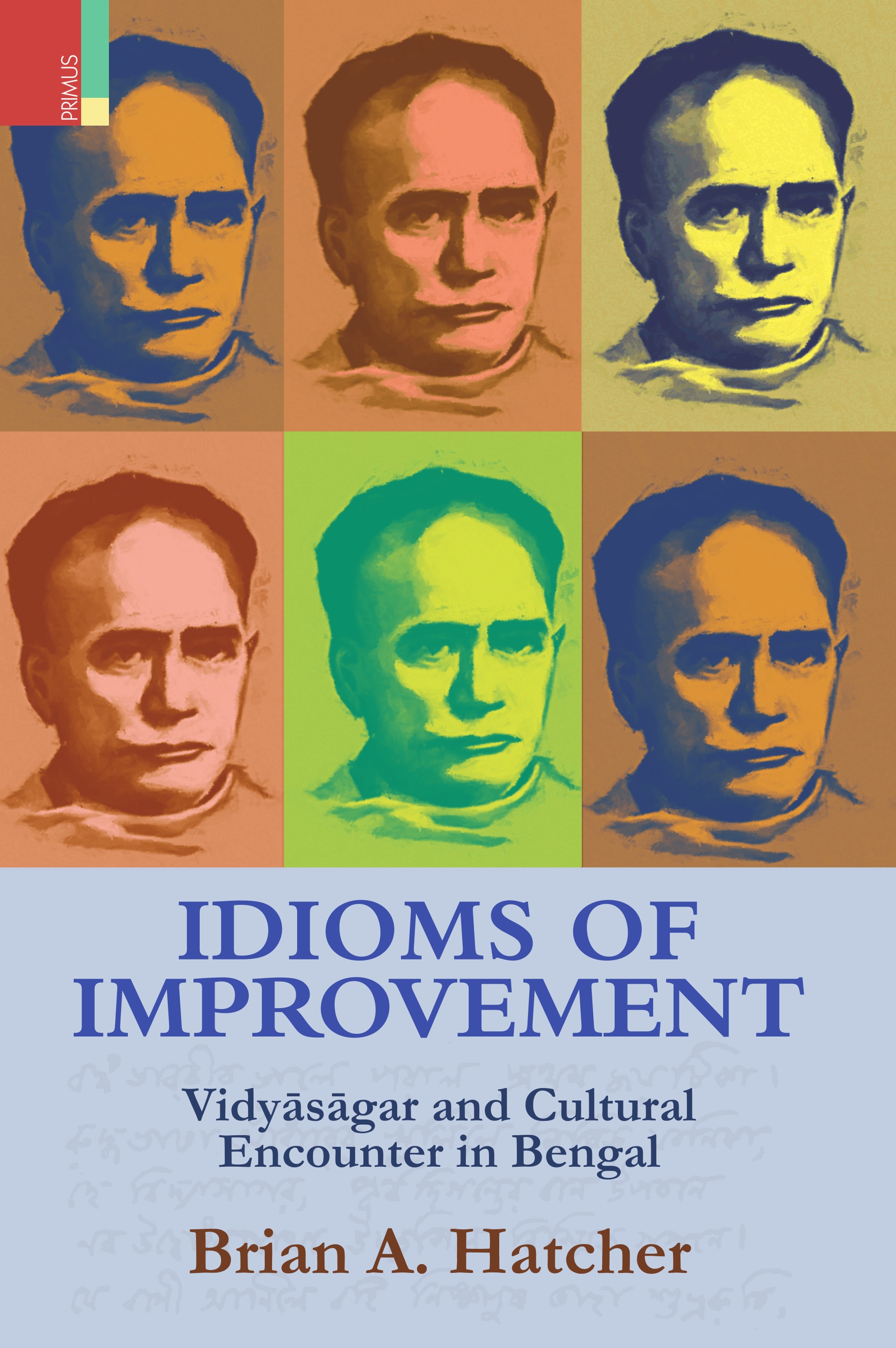
IDIOMS OF IMPROVEMENT: Vidyāsāgar and Cultural Encounter in Bengal
AUTHOR- Brian A. Hatcher
| HB ₹1395 |
||
INFORMATION
- AUTHOR : Brian A. Hatcher
- HB ISBN : 978-93-90430-06-2
- POD ISBN : 978-93-90430-07-9
- Year : 2020
- Extent : 342
- Discount available on checkout
- Usually dispatched within 3 to 5 working days.
Two hundred years after his birth, Īśvarcandra Vidyāsāgar remains a compelling figure in the history of modern Indian social change. The most widely acclaimed reformer of the nineteenth century after Rammohun Roy, Vidyāsāgar is renowned as both a Sanskrit pandit and an innovative modern thinker. Revered and reviled for his role in promoting the marriage of Hindu widows, he was also responsible for establishing new patterns in education, literature, and publishing. His response to the challenges and opportunities of colonial modernity has inspired poets and vexed interpreters; he remains the focal point for pressing discussions on power, privilege, and cultural hegemony. Idioms of Improvement seeks to fathom this ‘ocean of learning’ (vidyā-sāgar) by focusing on the convergence of Sanskritic and European cultural norms within Vidyāsāgar’s distinctive Bengali worldview. Unlike other colonial reformers, Vidyāsāgar held religious discourse and theology at arm’s length. While this fact has charmed his secularist admirers and infuriated the keepers of Hindu orthodoxy, neither camp has been able to provide a convincing, integrated account of his worldview in this regard. Idioms of Improvement offers such an account, making the case for a religious dimension to Vidyāsāgar’s worldview that can explain both his impatience with orthodoxy and his respect for dharma. As one compelling species of liberal Hindu modernity, this worldview deserves careful explication and on-going critical reflection.
The Author
Brian A. Hatcher is Professor and Packard Chair of Theology in the Department of Religion at Tufts University, Medford, USA. An expert on modern Hinduism and colonial Bengal, he is the author of Eclecticism and Modern Hindu Discourse (1999), Bourgeois Hinduism, or the Faith of the Modern Vedantists: Rare Discourses from Early Colonial Bengal (2008), Vidyasagar: The Life and After-life of an Eminent Indian (2013), and Hinduism Before Reform (2020). He has also translated Íśvarcandra Vidyāsāgar’s Hindu Widow Marriage (2011) and is the editor of Hinduism in the Modern World (2016).
Table of Contents
| Maps, Plates, and Tables |
| Abbreviations |
| Preface to Primus Edition |
| Preface |
| Sketch of the Life of Vidyåsågar |
| Note on Translation and Transliteration |
| Introduction |
| PART ONE-A World of Improvement |
| 1. Origins of a Bråhman Pandit |
| 2. Orientalism and the Sanskrit College |
| 3. Isvarcandraís Schooldays |
| 4. Vidyåsågar as Improving Vernacularist |
| PART TWO-Make an Effort! |
| 5. Bourgeois Pedagogy and Nitisastra |
| 6. Vernacularization in Early Bengali School Books |
| 7. Vidyåsågar’s Moral Pedagogy |
| PART THREE-Let Religion Go, but Dharma Remain |
| 8. A Householder’s Religion |
| 9. The Tattvabodhin∂ Sabhå |
| 10. Vidyåsågars Dharma |
| Conclusion |
| Bibliography |
| Index |




